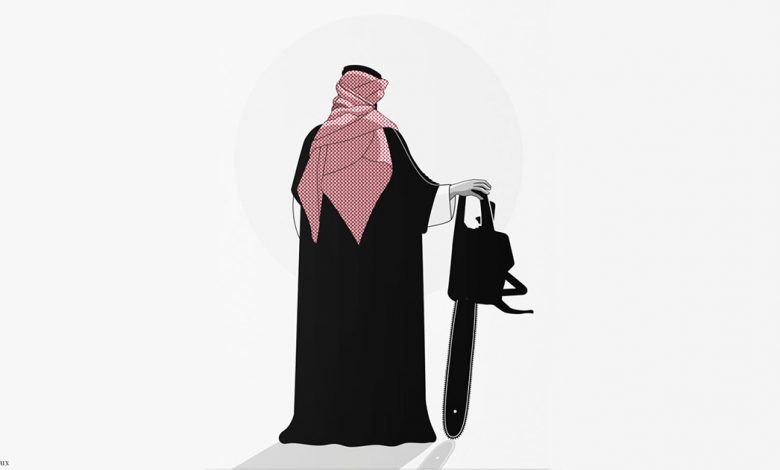
Human Rights Watch has listed Saudi Arabia among the ten most prominent human rights violators worldwide in 2022.
The organization highlighted the mass execution in Saudi Arabia of 81 men, ranked second in the top 10 human rights violations worldwide.
The organization indicated that on March 12, 2022, the Saudi authorities executed 81 men, their largest mass execution in years, despite recent promises to limit the use of the death penalty.
And with the largest execution massacre in Saudi Arabia’s history and record sentences close to a century, Crown Prince Mohammed bin Salman tightened his grip on the country in 2022, more than ever before, granting himself tyrannical immunity.
Mohammed bin Salman appointed himself prime minister, shielded by interests and diplomacy from any prosecution, and with free hands in heinous human rights violations.
According to the European Saudi Organization for Human Rights, the year 2022 proved that Mohammed bin Salman is responsible for the country’s cruel reality of human rights.
As an inevitable result of Bin Salman’s control, the intensity of repression increased in 2022 to carry out the largest mass execution, and dozens await their fate in death rows, including minors and individuals who did not face serious charges.
Opinion-makers, human rights defenders, and activists are in detention centres, women are being persecuted, freedom of opinion and expression is being violated, and people are being displaced from their homes and homes.
With the onset of 2022 and the impact of energy crises, global political fluctuations, and the Russian-Ukrainian war, the “diplomatic embargo” on Saudi Arabia was broken.
After the visit of French President Emmanuel Macron at the end of 2021, bin Salman inaugurated the season of diplomatic visits that had been “prohibited” since the killing of journalist Jamal Khashoggi at the Saudi embassy in Istanbul, and the hierarchy of the human rights file was lost between the energy and economic files.
In March 2022, bin Salman received British Prime Minister Boris Johnson, US President Joe Biden in July, and German Chancellor Olaf Schultz in September. These visits constitute the tip of the iceberg of normalization countries have made with Saudi Arabia’s violations.
Several countries had taken a step back in their public relationship with Bin Salman after human rights pressure to avoid tarnishing their image with a shameful relationship with a person who practices unpredictable brutality after the brutal murder of Khashoggi that clung to him.
Thus, with the succession of diplomatic pilgrimages this year, Saudi Arabia quickly recovered from the ban’s consequences. Its response to human rights pressure turned into more courage to commit more violations without deterrence.
In parallel with “breaking the isolation,” Saudi Arabia carried out, in March, the largest mass execution in the country’s history, followed by grave violations, including arbitrary sentences of up to 90 years against activists, not for great crimes, but just for tweets, really.. just tweets.
In September, bin Salman appointed himself prime minister by royal order, declaring his complete and public control over decision-making and aspects of the state. Days later, the US judiciary rejected a case against him because of his responsibility for killing Khashoggi. The US State Department justified the refusal by stating that he now possesses immunity as prime minister.
And while celebrations and festivals intensified in the various regions of Saudi Arabia, attempts to impose silence on society through intimidation, arrest, and suppression of freedoms increased. However, despite the continuation of sports, academic, diplomatic and recreational laundry campaigns and the payment of billions, pictures of the victims and their stories remained circulating to show that Saudi Arabia’s attempts to paint a false picture will not hide the depth of the violations.